Foreign media on Kazakhstan: wildfires in Abai region, Astana International Forum, trade ties with UAE

Al Jazeera:Fourteen people killed in Kazakhstan forest fires
Al Jazeera, a Doha-based international news agency, published an article on June 10 covering the wildfires in Abai region in eastern Kazakhstan.
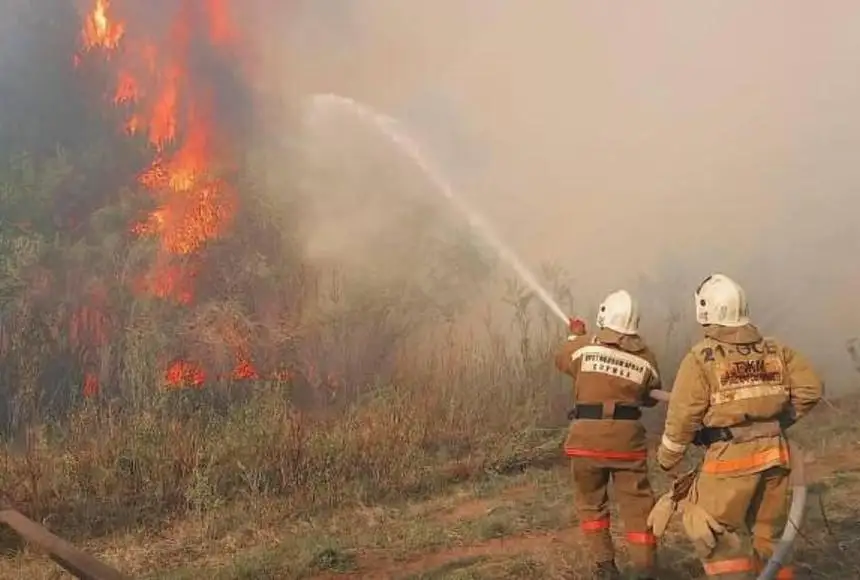 Photo: DES of the Abay region
Photo: DES of the Abay region
«Fourteen people have died in major forest fires in northeastern Kazakhstan, the Central Asian country’s highest such toll in years. The emergency situations ministry said on Saturday that 316 people had been evacuated but the situation was under control and homes safe, despite the high temperature and the changing direction of the wind hindering the response,» reads the article.
Arab News:UAE, Kazakhstan sign deal to boost trade ties
Arab News, a Riyadh-based news agency, reported on June 14 about a memorandum of understanding signed between KazakhExport and Etihad Credit Insurance, a UAE export credit company, to promote trade and support sustainable economic growth between the two countries.
«Exporters from the UAE and Kazakhstan will have better access to Shariah-compliant insurance and trade credit after both countries signed an agreement to protect companies from potential commercial risks in international dealings,» reads the article.

According to the agreement, both parties will arrange workshops with the goal of training small and medium-sized enterprises about the benefits of utilizing trade protection solutions. These solutions aim to minimize the risks of nonpayment arising from various commercial and geopolitical factors.
Anadolu Agency:4-way meeting on Syria scheduled for next week in Kazakhstan
Turkish Anadolu Agency reported on June 14, citing Turkish diplomatic sources, that Astana is expected to host the Astana process meeting on the Syrian crisis next week.
«Deputy foreign ministers of Türkiye, Russia, Iran, and Syria are planning to meet in Astana on June 21,» reads the article.
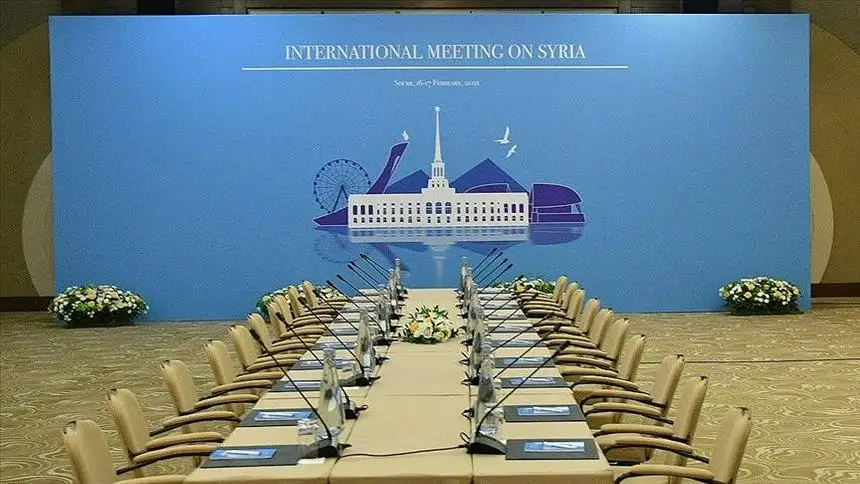
«Four countries have been exchanging views on normalizing ties between Türkiye and Syria, as well as counterterrorism, political process, and humanitarian matters, including the voluntary, safe, and dignified return of Syrians,» it continues.
Mehr News Agency:Iran close partner of Kazakhstan in Islamic world
Mehr news agency, based in Tehran, published an article on June 13 covering the meeting between Senate Speaker Maulen Ashimbayev and Iran's Ambassador to Kazakhstan Ali Akbar Jokar, during which the sides discussed the deepening of cooperation and partnership between the two countries.
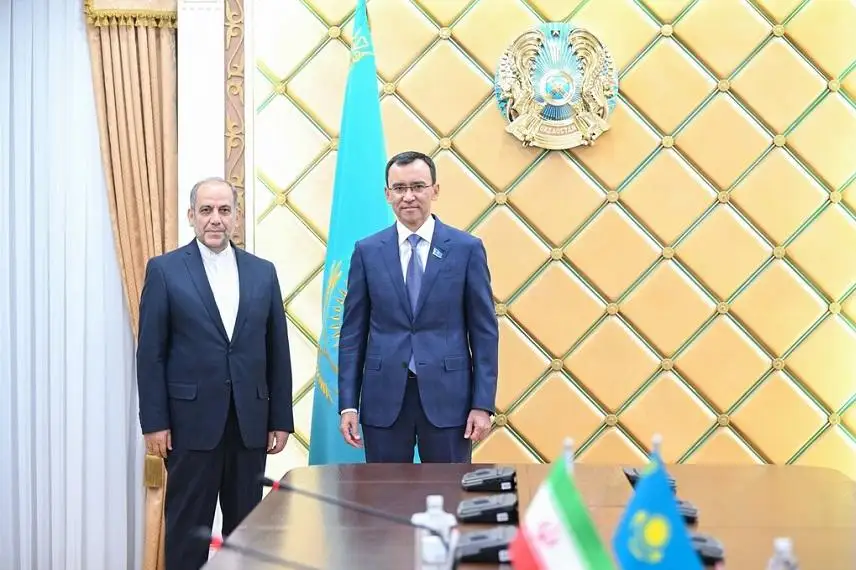 Photo: senate.parlam.kz
Photo: senate.parlam.kz
«Ashimbayev noted that bilateral relations have been gaining momentum between Astana and Tehran ever since President Tokayev’s visit to Iran in 2022. The Kazakh official went on to express keen interest of the Kazakh side to further develop relations between Kazakh and Iranian parliaments,» reads the article.
Euronews:Energy security in a fast-moving market
Euronews reported on June 14 from one of the panel sessions of the Astana International Forum, which focused on energy security and was themed Rethinking Energy Security: Need to Move Beyond Simplistic Solutions.
«Europe and Central Asia are looking for solutions to fast-moving energy challenges. The question of energy security was actively discussed at the Astana International Forum. Kazakhstan, one of the world’s most important oil producers, is aiming to increase its supply to and influence over the global energy market,» reads the article.
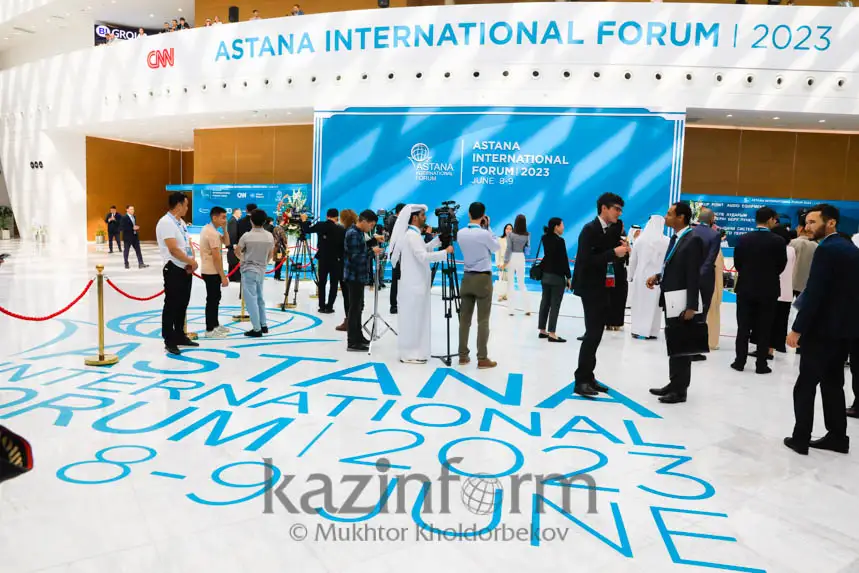
Euronews quotes Roman Vassilenko, Deputy Foreign Minister of Kazakhstan, who said, «Kazakhstan supplies about 8 percent of Europe’s oil needs, but Kazakhstan supplies about 20 percent of Europe’s uranium needs.»
«We are now thinking about developing a peaceful nuclear industry in Kazakhstan, given the abundance of resources that we have,» said Vassilenko, as quoted by Euronews.
Asia Times:Middle Powers face down the Great Powers at Astana forum
Asia Times, a Hong Kong-based English-language news website, published an article on June 12 from the Astana International Forum focusing on the role of middle powers. The term middle power refers to a country that wields a certain degree of influence and power on the global stage but is not considered a superpower or a major global player.
«The forum’s agenda was comprehensive, covering topics from food security, water management and capital flows to the role of the United Nations, economic integration, and the need for the middle powers to embrace responsible statecraft because of its absence elsewhere,» reads the article.
The article discusses in detail the speech of President Kassym-Jomart Tokayev at the plenary session.

«Tokayev managed to bring together most of the Middle Powers from Asia, Africa and the Middle East in Astana, though Latin America was poorly represented. The delegates signaled that they are no longer going to sit around idly and watch whole regions of the world sink into chaos and conflict because of showdowns and face-offs between Great Powers,» the article noted.
Global Voices:Kazakhstan is still haunted by Soviet era political repression and famine
Global Voices, an international community of writers, bloggers and digital activists, published an article on June 13 about the Day of Remembrance of Victims of Political Repression, which Kazakhstan marks on May 31.
The article delves into some of the darkest pages of Kazakh history, including Asharshylyq (famine) and Stalinist repressions.
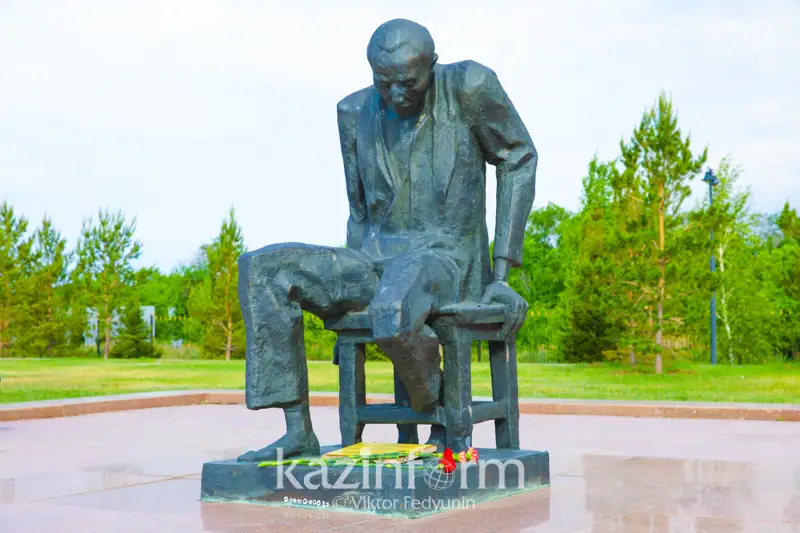
«In 2020, Tokayev established the State Commission for the Complete Rehabilitation of Victims of Political Repression. It consists of 11 working groups, and each one has been studying archives to find victims of repression belonging to specific groups such as religious clerics and local intelligentsia. The decision to establish this commission came 17 years after the government adopted the Law on the rehabilitation of mass political repressions in 1993, which was one of the very first laws adopted after Kazakhstan gained independence in 1991,» reads the article.